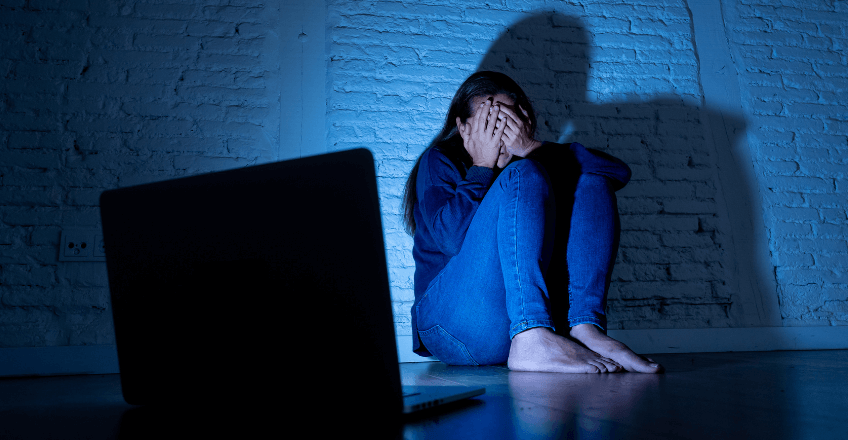Protecting yourself against cyberbullying
Published date: November 2021

If you’ve ever experienced harassing, threatening or unnerving texts, emails or messages on social media, you’ve experienced cyberbullying. This very real problem has affected over 87% of young people, and it could be argued that cyberbullying is more damaging than traditional bullying because it can happen at any moment and at any time. The effects of cyberbullying can have a huge impact on the victim’s mental health and well-being.
A 2017 report by Ditch the Label, one of the world’s leading anti-bullying associations asked students to name which platforms they had experienced cyberbullying. Instagram was the highest platform quoted with 42% of students having experienced cyberbullying, Facebook came in second with 37%, then Snapchat at 31%. Twitter was highlighted as the least with 9%.
As part of Anti-Bullying Week, we’ve put together some suggestions on how to keep your data and online presence more secure in an effort to prevent cyberbullying and how to deal with any unwanted attention.
Protecting your privacy
Nothing is private once it’s been published online, so don’t post anything too personal. Before posting, ask yourself if you’d be happy for your next-door neighbour to see it.
Privacy settings
Most social network sites give you the option to change your privacy settings so only friends and family can see your posts. This will limit the people who can see your information, but it won’t keep it totally secure. Always remember to log out of your device when you’ve finished, particularly if you’re using a shared PC or laptop.
Online friends
Passwords
Passwords are key to keeping your data private. Don’t use the same password for every account and choose passwords that are impossible to guess. Use a variety of characters including capital and lower-case letters – make it as impossible for someone to hijack your account as possible.
If you’ve been the victim of a cyberbully attack there are a number of things you can do to limit the damage.
Take your Time
Every cyberbully wants to create a reaction. The more you respond, the worse they get. If someone says something that’s upset you, take a moment before answering back. Put your phone down for an hour or so. Sometimes comments appear less upsetting than you first thought. Try to speak rationally to the person. They may not have realised how upsetting their comments had been.
Collect evidence
Take a screenshot of the comments from the person who’s cyberbullying you so you have evidence of what’s been said. Please remember that if you take a screenshot on Snapchat, the other person will be aware that you have done so.
Take a break
When you’re being cyberbullied, it can feel like a constant attack, so try to limit you time on social media to a few hours a day. A complete break will allow you to do other things that might be more beneficial for your mental health.
Tell someone
Remember you can block anyone who is causing you concern on all social media platforms and report them using the platform’s reporting process. Talk to your friends, family or school counsellor about what’s happening and ask them for advice. Sharing your problem is always helpful.
Internet security
BullGuard is an award-winning cybersecurity company which gives people the confidence to use the internet in absolute safety. They make it simple for you to protect your data, identity and privacy – at home, in the office and when you’re out and about.
BullGuard’s internet security works across PC, Mac, tablet and smartphone protection, and features a comprehensive product suite, including internet security, mobile security, identity protection, an easy-to-use VPN with military-grade encryption and BullGuard Small Office Security.
Cyberbullying is a significant issue and causes great emotional distress. You don’t have to suffer alone. If you’re a victim of online threatening behaviour, tell someone and report it to the relevant website or platform immediately.
While exploring strategies to protect yourself against cyberbullying, consider the implications of smartphone usage among children, including how early exposure can influence their online experiences. Discover why Norton 360 for Gamers is essential for safeguarding their online experiences.




Leave us your comment
You need to login to submit a comment. Please click here to log in or register.